Iran Press/ Iran news: Turquoise, which is called Turquoise in English, comes from a French word meaning Turkish because it was first imported to Europe via Turkey, but its origin is Iran.
In Iran, turquoise is called Firoozeh which means victory in the Farsi language. Turquoise is actually one of Iran's national gemstones.
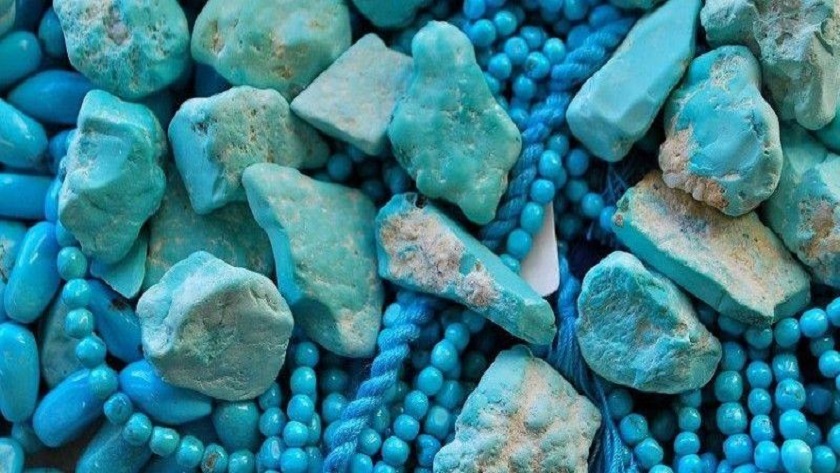 Rough turquoise stone
Rough turquoise stone
Related News:
Iran among top producers of gold, gems
Turquoise History:
One of the most recognizable and consistently fashionable gemstones, Turquoise has been around since about 6,000 BC.
Persia is known to have some of the world’s oldest natural turquoise mines in the world. It is said that the first type of Turquoise was introduced into western culture through the Silk Road, where Persian Turquoise became available to Europe, western Asia, and America coming from cities like Tous, Nishapur, or Neyshabur, Pamhgan, and Baghdad among others.
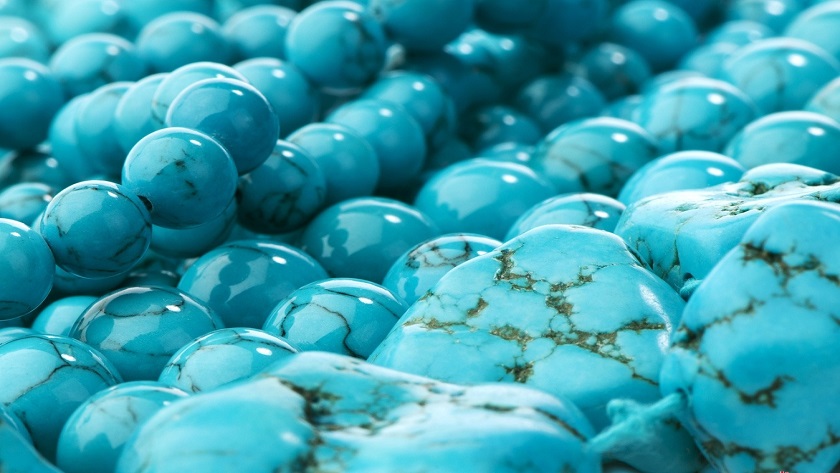
Turquoise played a crucial role in the protection of the citizens of Persia as they traveled the great Silk Road to sell it far and wide over 2,000 years ago. It is believed that Turquoise sourced from Persian mines is of the finest and purest quality.
Turquoise Formation
Turquoise is located at a shallow depth. Upon entering the mine, the blue veins appear on the walls. Water from bad weather seeps into these fractured terrains, and on its journey, it dissolves the copper layers it penetrates. In the depths, it warms on contact with hot magma. Later it goes back through the volcanic rocks, enriched in aluminum and phosphorus. The connections between copper, aluminum, and phosphorus allow the formation of the turquoise deposits in the adjacent fractures. This process is very slow and may take several million years.
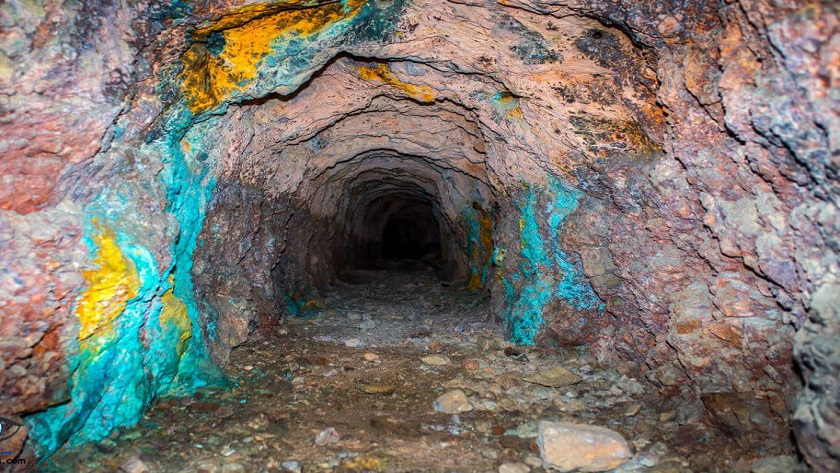 A turquoise mine
A turquoise mine
In Iran, in addition to Neyshabur (Nishapur) turquoise mine, which is the most important mine in the country and is world-famous for its excellent quality, there are other turquoise mines, but due to the small amount and lack of quality, the mined turquoise is not famous as the one in Neyshabur (Nishapur).
Related News:
Iranian Caviar; what Iran is known for
Iranian Turquoise varieties
Persian: The most-prized turquoise color is an even, intense, medium blue, sometimes referred to as robin’s egg blue or sky blue in the trade. The traditional source for this color is the Nishapur district of Iran, so you’ll also hear it described as Persian blue.
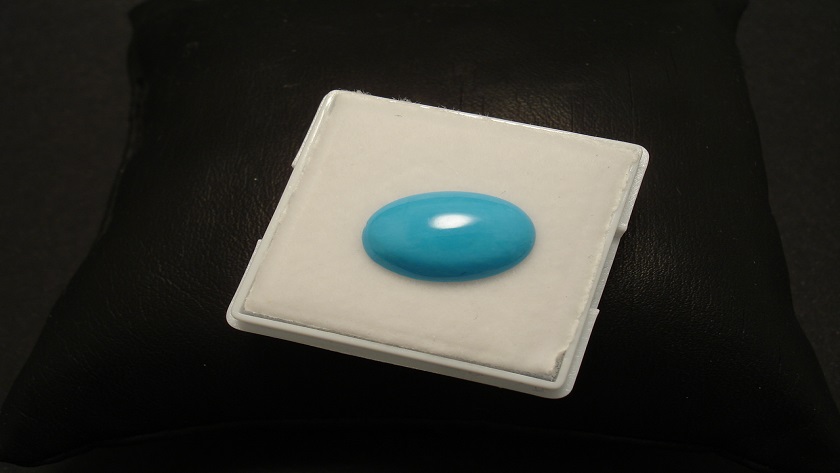 fine Persian blue turquoise
fine Persian blue turquoise
Matrix: Iranian turquoise might also have veins of matrix running through it (matrix is a remnant of its surrounding rock). The material known as spiderweb turquoise contains fine seams of matrix that form attractive web-like patterns.
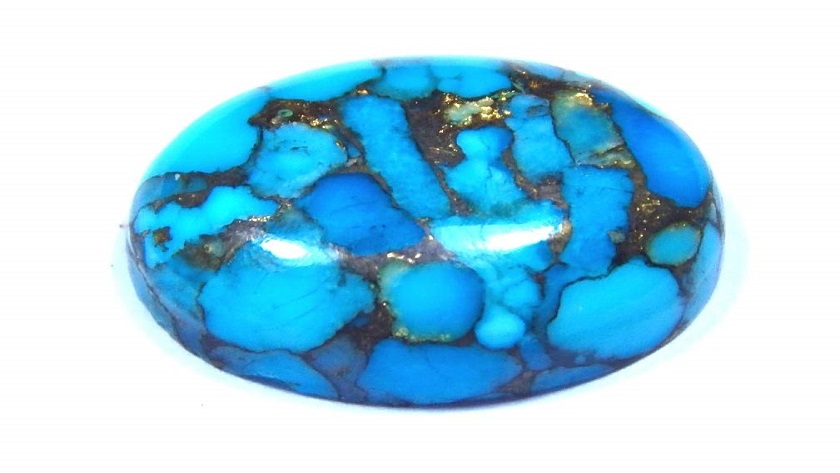 Matrix or spiderweb turquoise
Matrix or spiderweb turquoise
Related News:
Saffron; what Iran is known for
Iranian Culture and Turquoise:
Persian turquoise jewelry is not a mere object of pageantry for Iranians; it is intimately linked with religion. The Prophet advised his followers to wear it.
According to the imam, it was decreed that every man who wears a turquoise stone will not know insecurity. Turquoise will also provide many benefits to his health; it will fortify his heart and strengthen his eyesight.
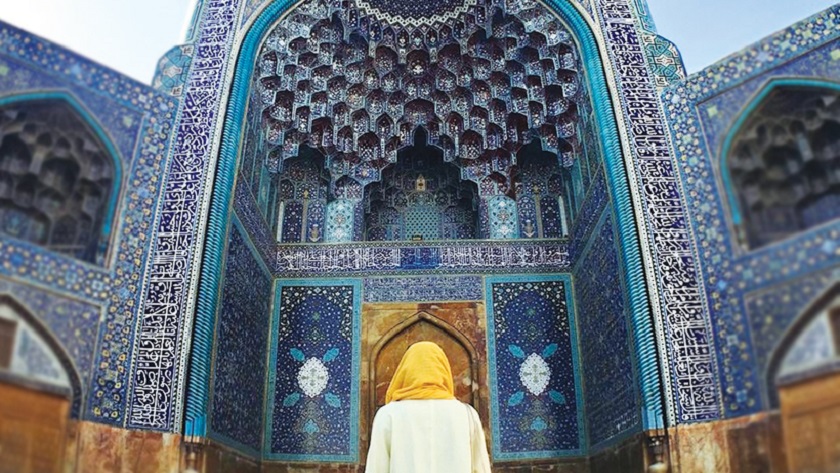 A mosque in Isfahan inspired by the heavenly hue of turquoise
A mosque in Isfahan inspired by the heavenly hue of turquoise
Also, Persian turquoise has played a significant role in Iranian architecture and literature. Not only it has been used in jewelry for dignitaries and Shia Muslims but its unique color has been associated with heaven and used in exquisite domes of mosques.
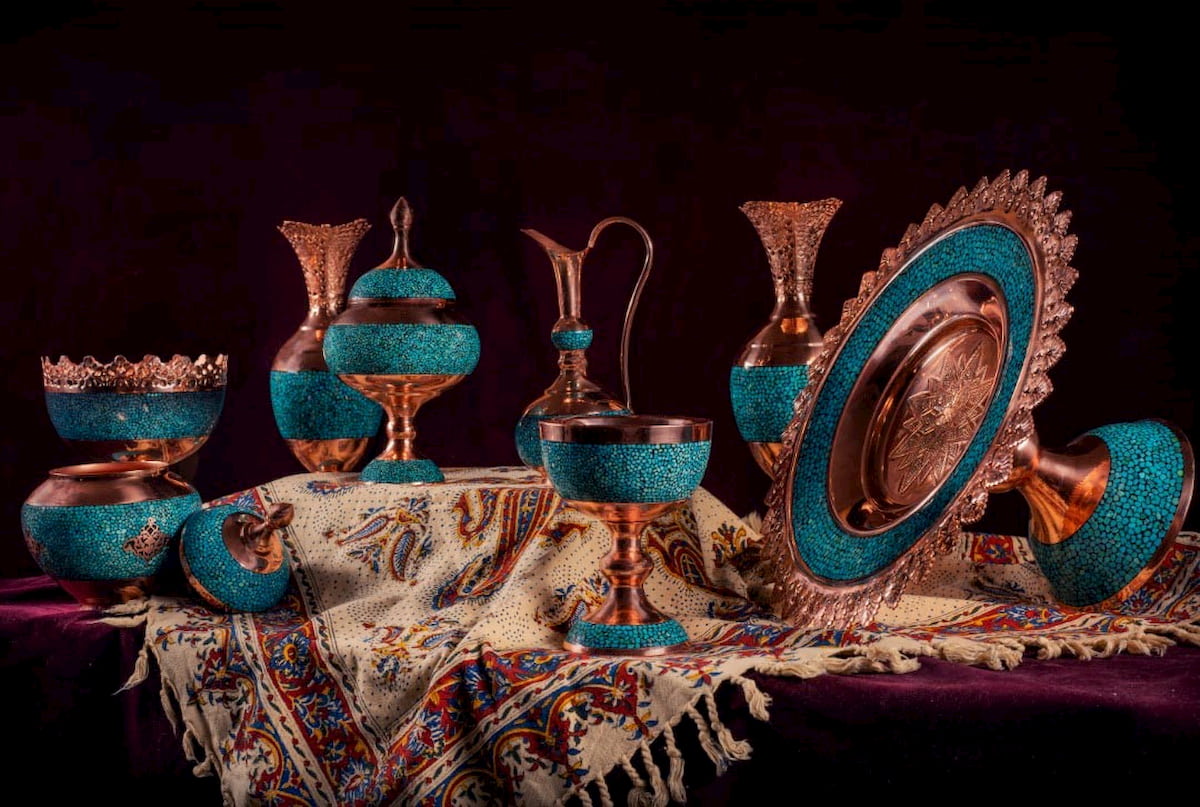 Copper inlaid turquoise artifacts
Copper inlaid turquoise artifacts
Iranian Turquoise in handicrafts
Turquoise inlaid plates (Firoozeh koob) and artifacts are mainly produced in Isfahan and are among the most desired items by tourists as souvenirs.
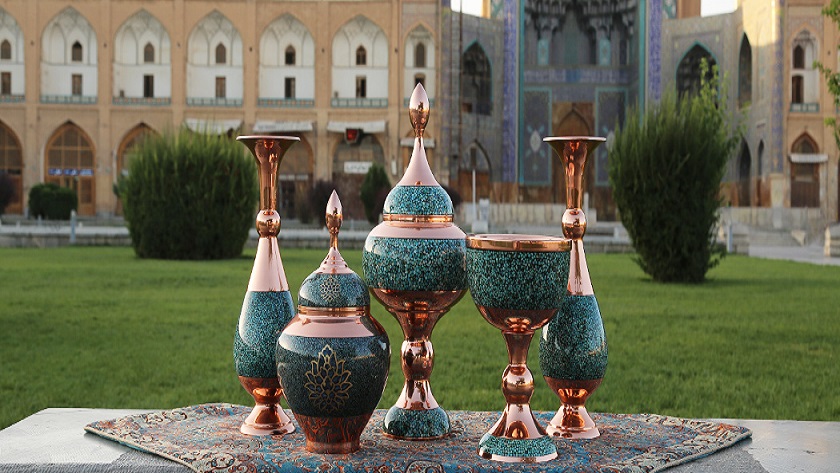 Exquisitely turquoise inlaid artifacts displayed in Isfahan's Naqsh-e Jahan Square
Exquisitely turquoise inlaid artifacts displayed in Isfahan's Naqsh-e Jahan Square
Inlaid turquoise is one of the most beautiful Iranian artworks with a history of at least half a century. The art consists of setting pieces of turquoise on copper, silver, brass and bronze dishes.
Related news:
Iranian Carpet; what Iran is known for
Turquoise used in Jewelry
Iranian artists use turquoise in various forms of art including calligraphy and handicrafts.
Turquoise jewelry has always been popular in the Orient. It was a highly revered item among Tibetans and was used in China since the thirteenth century BCE.
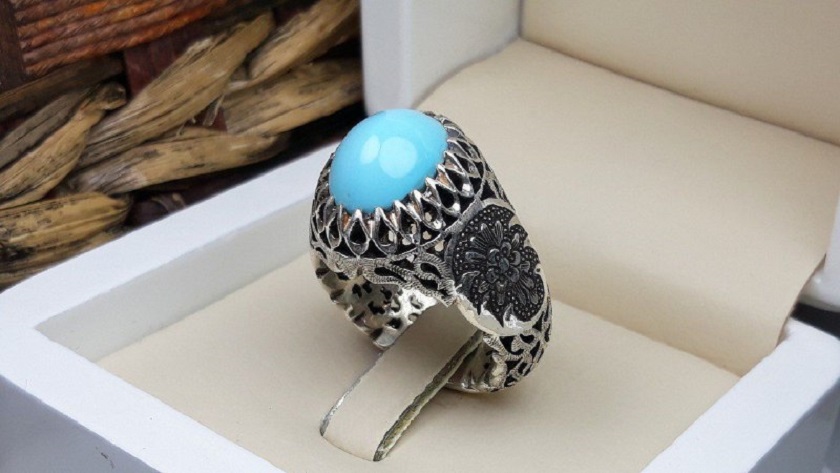 Embossed silver ring with Persian turquoise
Embossed silver ring with Persian turquoise
Read More:
Pistachio; What Iran is known for
Ashkan Salehian

